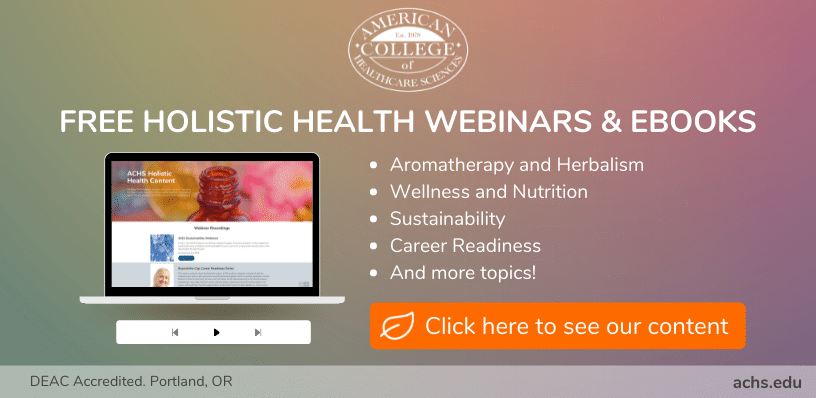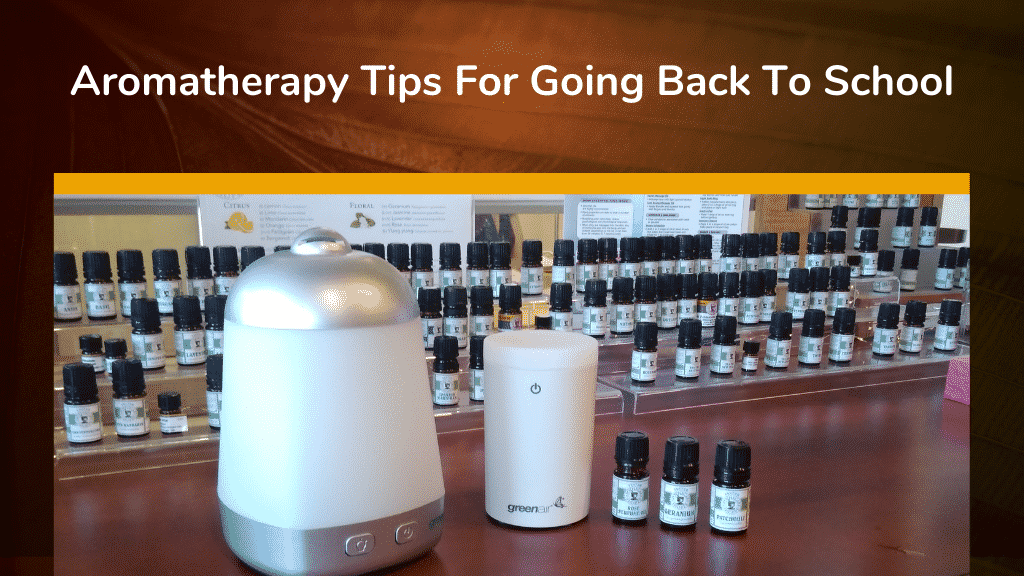
By Professor Margaret LaPierre, BS, HHP, CERT. AROMA., LME, LEI
It is that time of year and everyone is heading back to school. Are you prepared? Maybe this is your first time returning to school after a long hiatus or you are on track to complete your educational goals. Juggling work and family while going to school can be daunting. Why not let your return to school be a little easier with the help of aromatherapy!
There are many ways you can use aromatherapy to help relieve stress, relax, and focus. You can incorporate aromatherapy by way of a soothing bath, a diffuser to calm the mind, a personal inhaler to help focus, or a pillow spray to help you sleep.
You don’t need a lot of special equipment. The blends below have few steps, are easy to make, and are a lot of fun!
Safety Precautions:
All the formulas can be used by your choice of method of application. The formulas are made for adults and should not be used with children unless they are reformulated safely for children. If any formula is used for topical application, be sure to skin patch test. If any adverse reaction occurs, discontinue use and consult with a physician.
Bath Oil Blend
If you have had a hard day or your brain is overloaded from too much studying, relax with this formula. The essential oils are relaxing, relieve stress, are anti-anxiety, and are uplifting.
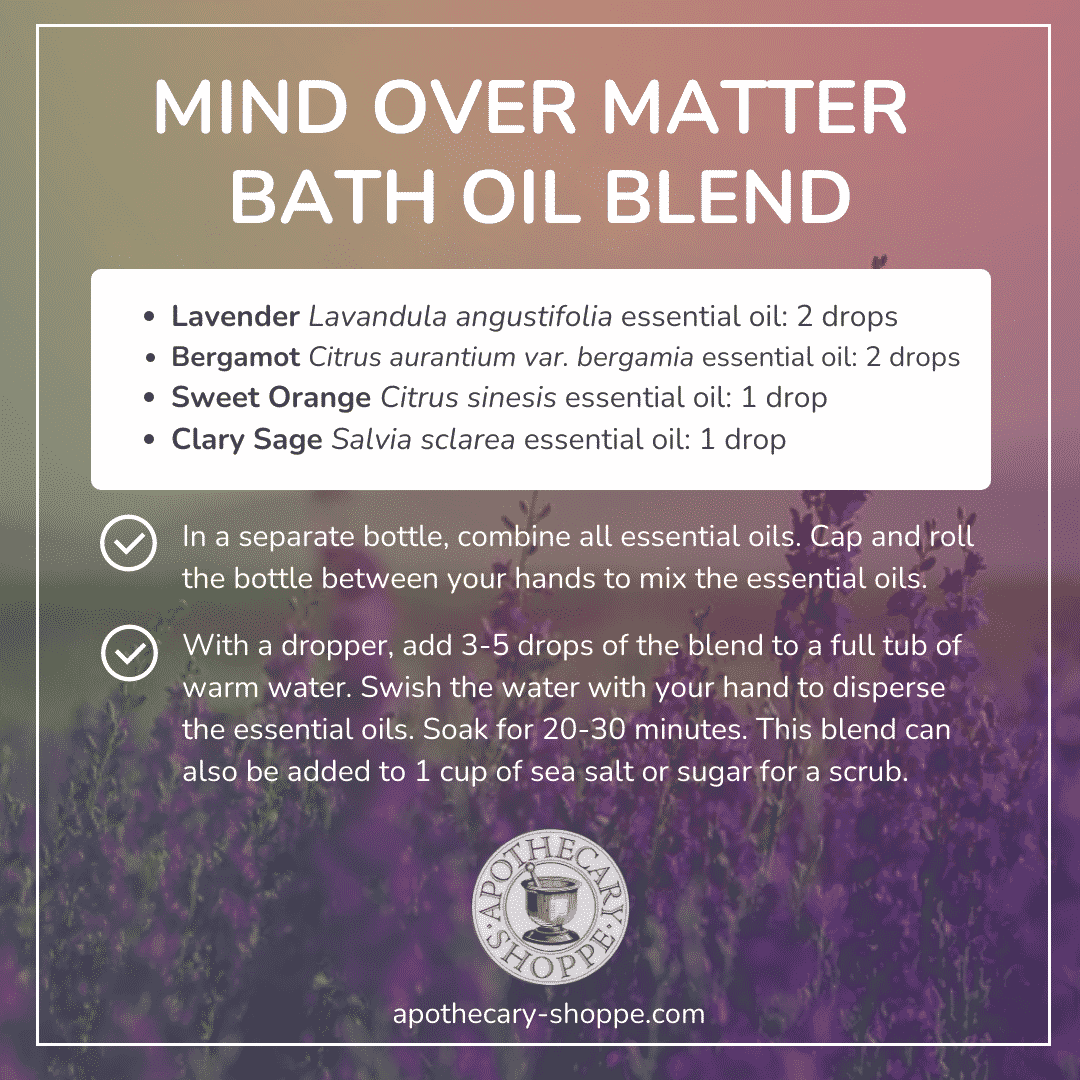
Mind Over Matter
- Lavender Lavandula angustifolia essential oil: 2 drops
-
Bergamot Citrus aurantium var. bergamia essential oil: 2 drops
-
Sweet Orange Citrus sinensis essential oil: 1 drop
-
Clary Sage Salvia sclarea essential oil: 1 drop
Directions: In a separate bottle, combine all essential oils. Cap and roll the bottle between your hands to mix the essential oils. With a dropper, add 3-5 drops of the blend to a full tub of warm water. Swish the water with your hand to disperse the essential oils. Soak for 20-30 minutes. This blend can also be added to 1 cup of sea salt or sugar for a scrub.
Personal Inhaler
Do you have assignments due, tests to study for, and need to focus? This blend will help you focus and stay alert. This method of application is portable so you can take it with you.
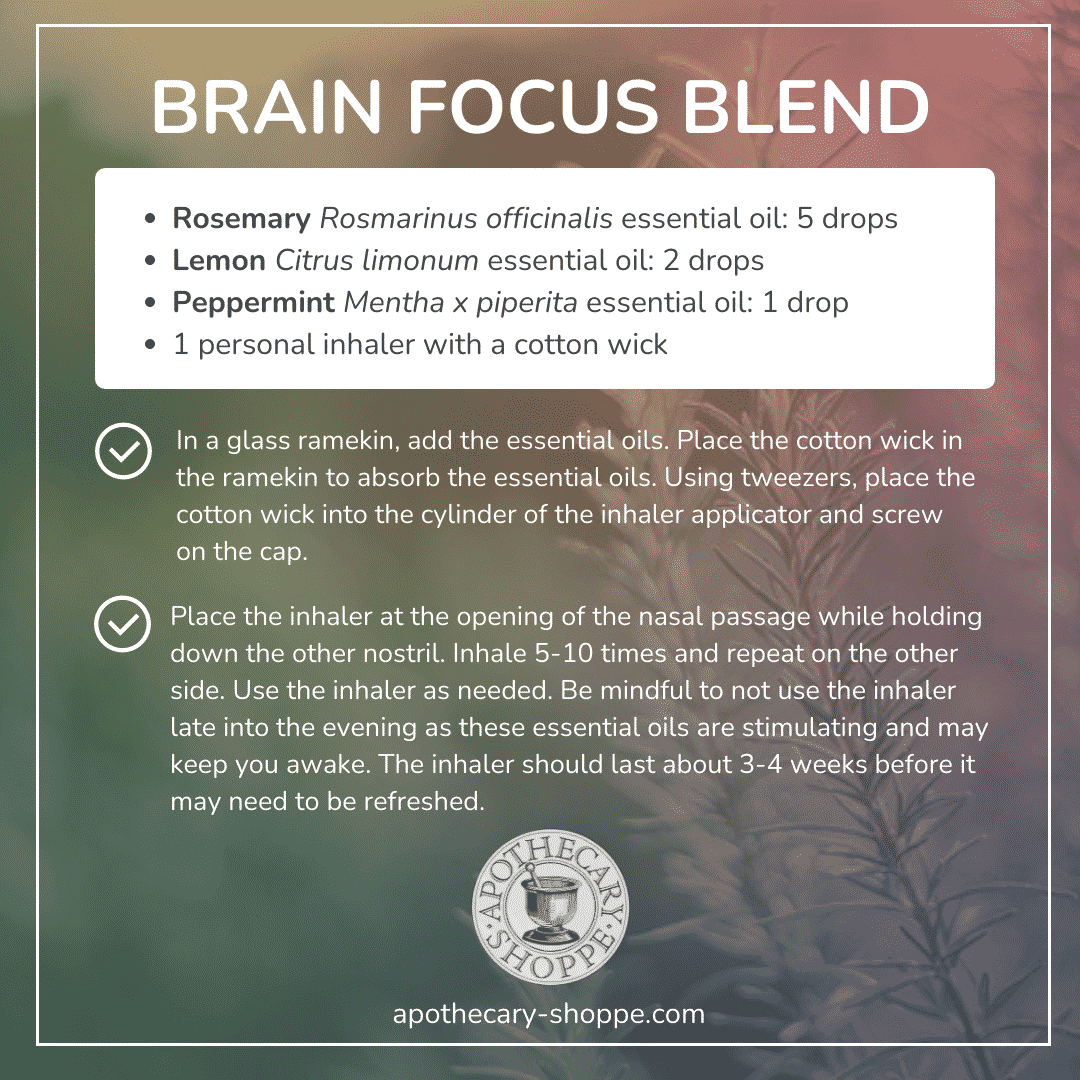
Brain Focus
-
Rosemary Rosmarinus officinalis essential oil: 5 drops
-
Lemon Citrus limonum essential oil: 2 drops
-
Peppermint Mentha x piperita essential oil: 1 drop
-
1 personal inhaler with a cotton wick
Directions: In a glass ramekin, add the essential oils. Place the cotton wick in the ramekin to absorb the essential oils. Using tweezers, place the cotton wick into the cylinder of the inhaler applicator and screw on the cap. Place the inhaler at the opening of the nasal passage while holding down the other nostril. Inhale 5-10 times and repeat on the other side. Use the inhaler as needed. Be mindful to not use the inhaler late into the evening as these essential oils are stimulating and may keep you awake. The inhaler should last about 3-4 weeks before it may need to be refreshed.
Pillow Spray
Are you on overload, cannot turn your mind off, and need to sleep? Put your mind to rest with this relaxing pillow spray.
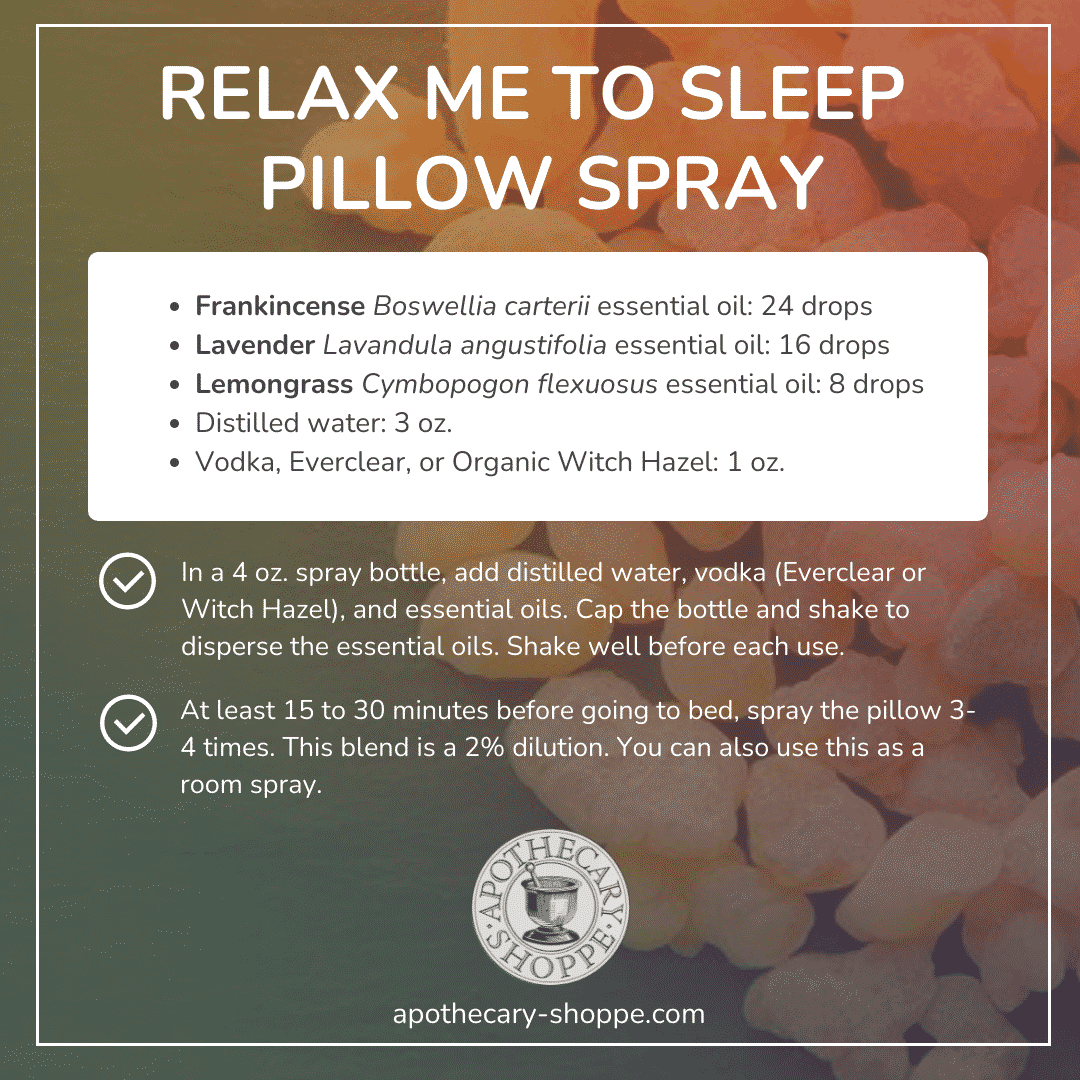
Relax Me to Sleep
-
Frankincense Boswellia carterii essential oil: 24 drops
-
Lavender Lavandula angustifolia essential oil: 16 drops
-
Lemongrass Cymbopogon flexuosus essential oil: 8 drops
-
Distilled water: 3 oz.
-
Vodka, Everclear, or Organic Witch Hazel: 1 oz.
Directions: In a 4 oz. spray bottle, add distilled water, vodka (Everclear or Witch Hazel), and essential oils. Cap the bottle and shake to disperse the essential oils. Shake well before each use. At least 15 to 30 minutes before going to bed, spray the pillow 3-4 times. This blend is a 2% dilution. You can also use this as a room spray.
Diffuser Blend
If you need downtime to recharge, a mental break from studying, or from family responsibilities, this diffuser blend will do the trick.
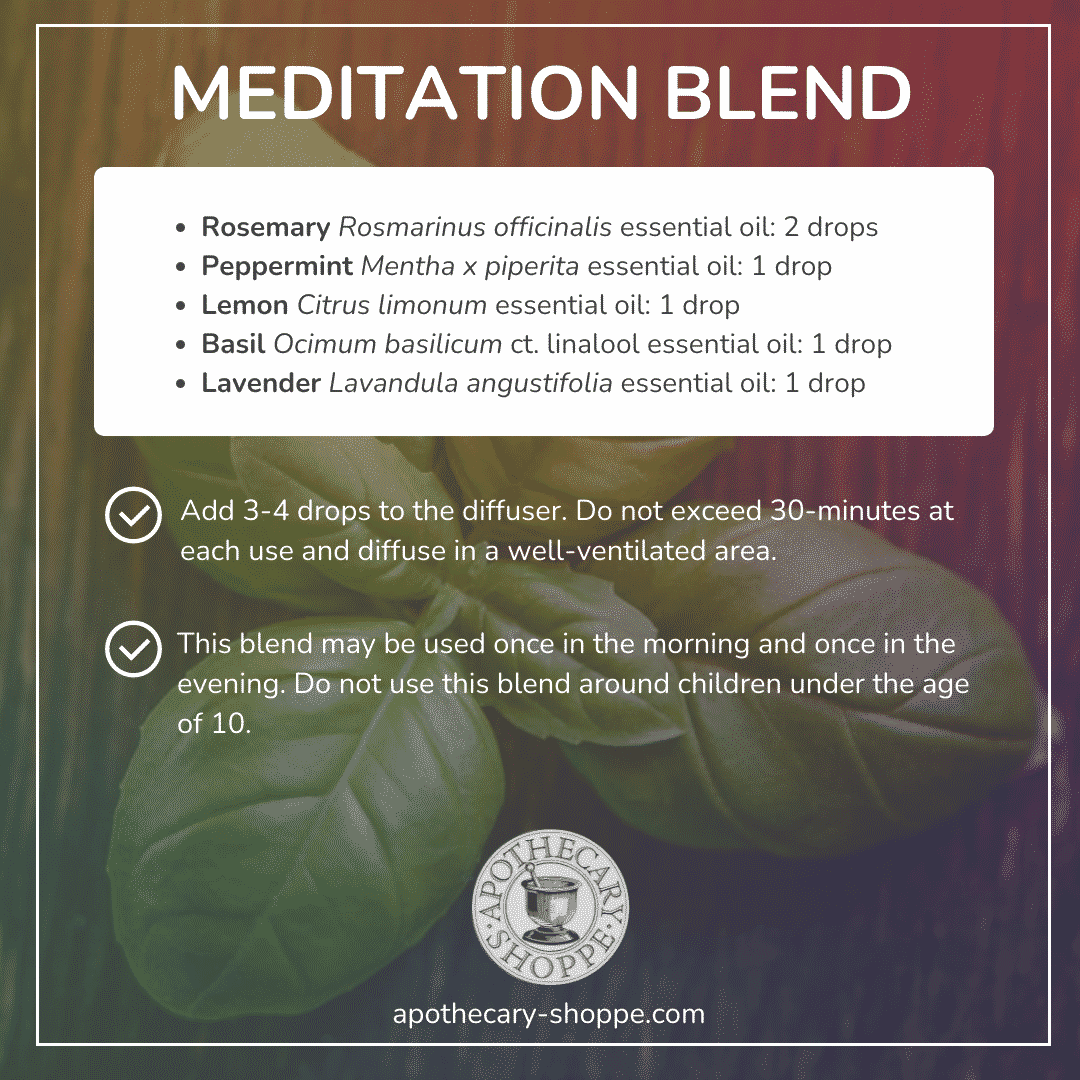
Meditation Blend
-
Rosemary Rosmarinus officinalis essential oil: 2 drops
-
Peppermint Mentha x piperita essential oil: 1 drop
-
Lemon Citrus limonum essential oil: 1 drop
-
Basil Ocimum basilicum ct. linalool essential oil: 1 drop
-
Lavender Lavandula angustifolia essential oil: 1 drop
Directions: Add 3-4 drops to the diffuser. Do not exceed 30-minutes at each use and diffuse in a well-ventilated area. This blend may be used once in the morning and once in the evening. Do not use this blend around children under the age of 10.
If you’re missing any of the essential oils for these recipes, you can grab them from the ACHS Apothecary Shoppe online.
Other Helpful Tips:
- Practice good time management. This will help you to keep track of assignment due dates.
- Reduce distractions while studying, preparing assignments, or taking tests.
- Finish studying at least 30 minutes to an hour before going to bed to clear your mind. This includes shutting down all electronics.
- Take brain breaks and study in blocks of time. Don’t try to cram.
- Drink water and reduce intake of caffeinated beverages.
- Eat healthy snacks and less sugar while studying.
- Get plenty of rest, as much as possible.
- Practice yoga, meditation, walking, or any form of exercise.
- Breathe deeply and often.
Do you have any other helpful tips that you use? Let me know in the comments!
Disclaimer: This article is for informational purposes only. It is not intended to treat, diagnose, cure, or prevent disease. This article has not been reviewed by the FDA. Always consult with your primary care physician or naturopathic doctor before making any significant changes to your health and wellness routine.
References:
[1] Cooksley, V (2015). Aromatherapy treatments for the mind and emotions. Aromatherapy: a holistic guide to natural healing with essential oils (pp, 310, 330 and 351). Floramed Publishing.
[2] Curtis, S., Johnson, F., &. Thomas, P. (2017). Mind and well-being. Essential Oils: all-natural remedies and recipes for your mind, body and home (pp. 237-238). Penguin Random House.
[3] Parramore, K. (2018). Mental and emotional health. Aromatherapy with essential oil diffusers (pp. 89, 91-107). Robert Rose.
[4] Purchon, N. & Cantele, L. (2014). Conditions and remedies. The complete aromatherapy & essential oils handbook for everyday wellness (pp. 178 and 407). Robert Rose.
[5] Stiles, K. (2017). Relaxation and emotional support formulas. The essential oils complete reference guide (pp. 252, 256 and 348). Page Street.
FACULTY BIO:
Margaret holds a B.S. in Health & Wellness, is a Licensed Master Esthetician, and Master Esthetics Instructor. She has trained extensively with top industry leaders in the skincare field. She has worked with dermatologists and plastic surgeons combining clinical skincare with holistic treatments in the areas of menopause & hormonal dysfunction, dermatologic skin concerns, and global skin tone issues. She is Oncology-trained and certified in Osteopathy for facial esthetics. She serves on the regulatory board for esthetics in her state. She teaches SPA 120 and 220, AROMA 101, 103, and 203.
Disclosure of Material Connection: I am an instructor for the American College of Healthcare Sciences, the Institution that publishes this blog. However, all opinions are my own. This blog may contain affiliate links. I am disclosing this in accordance with the Federal Trade Commission’s 16 CFR, Part 255: “Guides Concerning the Use of Endorsements and Testimonials in Advertising.”
About American College of Healthcare Sciences

This commitment to our students and graduates reflects in our current survey results that reflect 98% of our students would recommend ACHS to a friend or family member.
We believe education is the most powerful tool for changing an individual and the world around us.
When a person enrolls as ACHS, it is vitally important that they graduate with tools they need to forge their own holistic and sustainable missions, build up their communities confidently and changing the face of healthcare with knowledge.
 President’s Message: End Of Year Reflectionsby American College of Healthcare Sciences●December 31, 2020
President’s Message: End Of Year Reflectionsby American College of Healthcare Sciences●December 31, 2020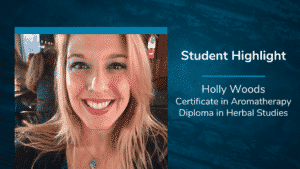 Student Highlight: Wife and Husband Team Start New Businessby American College of Healthcare Sciences●December 22, 2020
Student Highlight: Wife and Husband Team Start New Businessby American College of Healthcare Sciences●December 22, 2020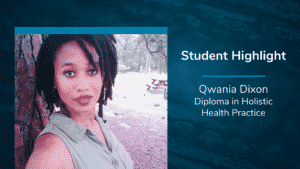 Student Highlight: Holistic Health, Gratitude, and Smoothies |achs.eduby American College of Healthcare Sciences●December 17, 2020
Student Highlight: Holistic Health, Gratitude, and Smoothies |achs.eduby American College of Healthcare Sciences●December 17, 2020 3 Tips For Building Better Habitsby American College of Healthcare Sciences●December 10, 2020
3 Tips For Building Better Habitsby American College of Healthcare Sciences●December 10, 2020
